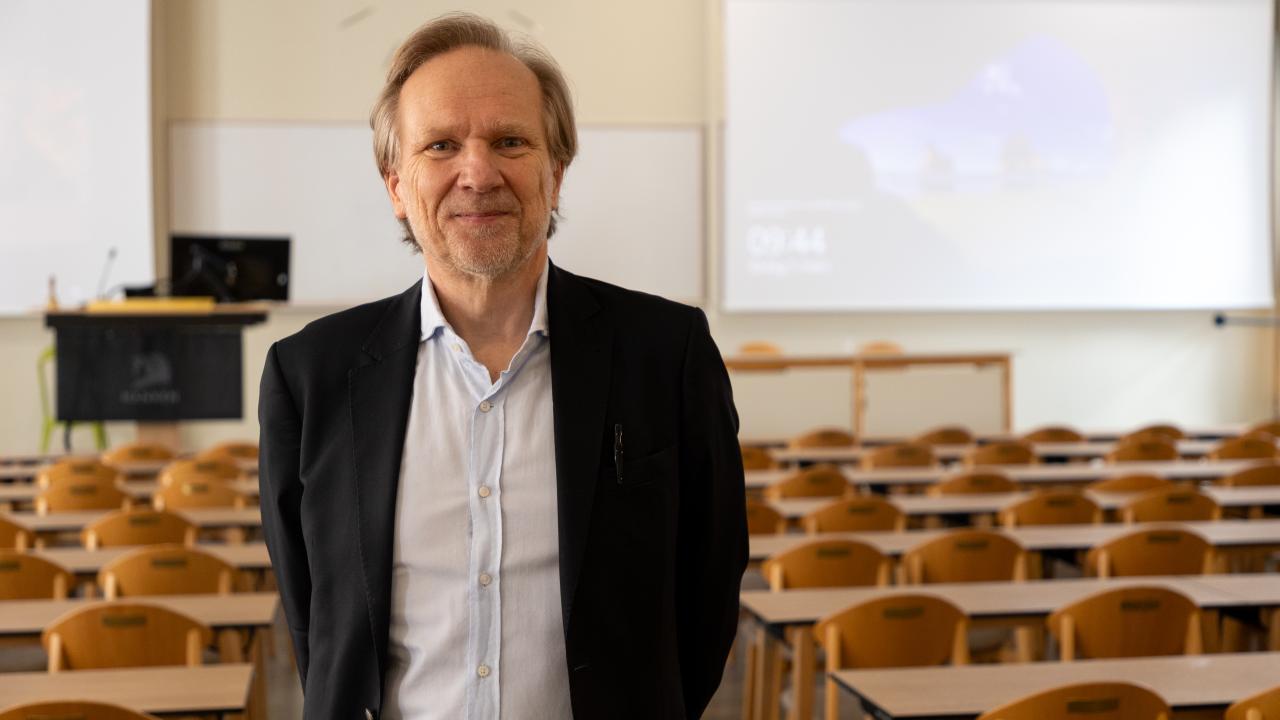Why do humans succeed or fail in groups?

“My goal is to teach students to think more sharply than before about the big challenges of our time, such as global warming and pandemics. I do this by introducing them to the concepts that modern social scientists - psychologists, sociologists, economists, and political scientists - use to address these complex issues”, says Professor Ellingsen, who is an honorary doctor at Hanken School of Economics.
In order to provide his students with a theoretical framework Ellingsen wrote the book Institutional and Organizational Economics - A Behavioral Game Theory Introduction. In the book, Ellingsen equips readers to answer essential questions around the success and failure of humans in groups. He emphasizes how other-regarding preferences such as altruism and dutifulness matter for societies’ prosperity, and analyzes the role of culture in the form of shared values and understandings.
“The primary focus of my book revolves around the questions of how people can be encouraged to help rather than hurt each other, and how they can use methods such as sacrifice, cooperation, and coercion to promote the common good.”
How to solve social dilemmas
Social dilemmas, referring to actions where benefiting the individual have negative consequences for the group they are part of, are a central theme in Ellingsen’s lectures.
“For example, fishers at a lake are materially better off if they all fish responsibly. But regardless of what the others do, each fisher earns more money by fishing irresponsibly. And - people all over the world would be materially better off if every country would cut military expenditures by half, but each country is more secure if it does not.”
Ellingsen says there are two possible solutions to solve social dilemmas.
“You either need to change the people - make them less selfish - or change the situation by constructing rewards and punishment in order to align self-interest with the common interest.”
To demonstrate that people aren't as selfish as commonly assumed, Ellingsen recounts an experiment where researchers purposely "lost" 17,000 wallets - more accurately, semi-transparent envelopes - in 355 cities across 40 countries. These wallets contained various items such as a key, a shopping list, the owner's business card, and occasionally money.
“You might think that more people would keep the wallets if they contained money, but the opposite was true. Although there were cultural differences in how people reported about the wallets, in nearly all countries people were more inclined to report the wallet when it held money.”
Ellingsen’s overall goal is to shift the focus within the field of economics that lies predominantly on studying the behavior of individuals.
“In economics, there's a tendency to overlook the importance of studying social structures and how individuals interact within different contexts. It's crucial for students to gain a more comprehensive understanding.”
Tore Ellingsen holds the Ragnar Söderberg professorship of economics at Stockholm School of Economics. He is also an adjunct professor at Norwegian School of Economics in his hometown, Bergen. He visited Hanken School of Economics in the beginning of March for the honorary talks event “How to Save the World? Success and Failure of Humans in Groups”.
Text: Jessica Gustafsson
Photo: Gustaf Hafström (portrait photo)


